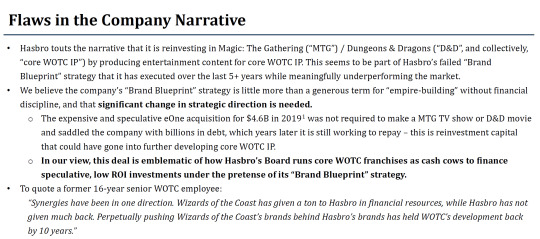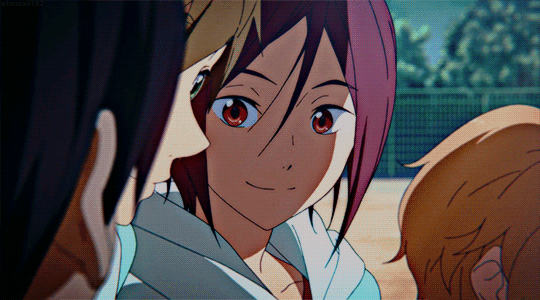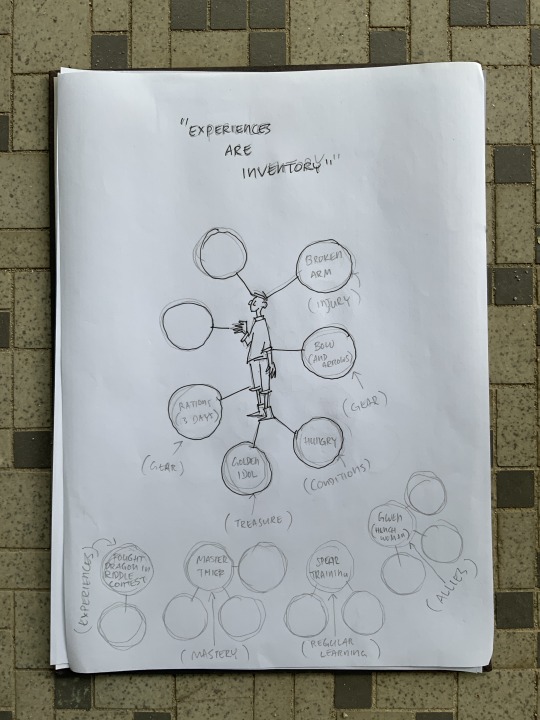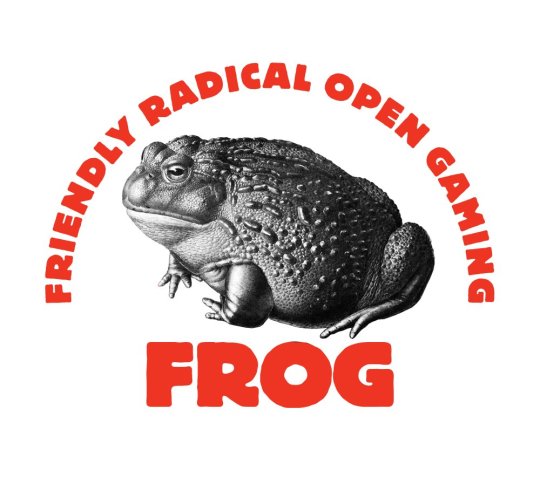Text
The Peace of First Watch
The End of the Last War
After the mysterious destruction of Dragonscove, shortened to just "The Incident" in the treaty, leaders of all the major Dragonlander polities sued for a peace council to be held in First Watch, which was seen as relatively neutral ground due to its geographic position in the Dawnlands & its political position as an ex-colony.
Treaty Text (Gardenwarder's New Standard Translation)
In the name of the Sphere and the Twin Suns themselves: Be it known to all, and every one whom it may concern, or to whom in any manner it may belong, That for many Years past, [Discords and Civil Divisions] being stirred up on Our Sphere, particularly regarding the Kingdoms of the Lands of the Dragon, with their Allies and Adherents, and the ensuing hegemony of the Kritarchial Judgeship after the loss of Dragons' Cove, on the one side; And the various relevant Organizations who have traditionally occupied the Lands of the Dawn, the Fenmire, Elfheim, with their Allies and Adherents on the other side.
It has at last happened, by the stroke of Gnomish Luck, seconded by the Endeavours of the Long-suffering Giantfolk of the southern expanses, that all parties have formed thoughts of a Universal Peace.
THEREFORE LET IT BE RESOLVED:--
That there shall be a Universal Peace of Our Sphere, and a perpetual, true, and sincere Coöperation between ALLFOLKS of the Lands of Dawn, with their various governing structures, and the various Kingdoms of the Lands of the Dragon;
That there shall be on the one side and the other a perpetual Oblivion, Amnesty or Pardon of all that has been committed since the Reëmergence, in what place, or what manner soever the Hostilitys have been practiced, magickal, physickal, or faërie in Origin;
That the Disputes with the Giantfolk and their allies and adherents shall be amicably terminated,
That there shall come to be established within twenty moonths time two organizations, supported by local jurisdictions as appropriate, in order to to prevent another Incident [like the one at Dragonscove]:--
First, a Society organiz'd for the purpose of coöperating to advance magickal studies,
Second, a regular Meeting of the Undersigned and any other representatives of legitimately-appointed Politickal Power upon Our Sphere.
So Agreed.
0 notes
Text
Wailing
desperately, Our Sphere
makes the hue and cry.
a new age is borne unto us,
sheathed in the hangman's caul.
0 notes
Text
“Damn the boy!” -Prof. Dr. J. R. R. Tolkien realizing that he’s going to have to start writing all of this crap down
To everyone who has lush fields ripe with story ideas but is struggling to go out and actually harvest them with your writer’s scythe: that’s alright. There’s a reason.
I see writers despairing or making self-deprecating jokes about how many wips they have, as if the ability to come up with the idea is equal to the ability to finish it out into an end product.
It isn’t.
A lot of our ideas come about, not because we were determined to be productive writers, but because daydreaming is an internal escape from life’s demands.
Writing is a demand, too.
Resting and relaxing are basic needs, unlike the high level, abstract satisfaction of being creatively productive. That’s why you might daydream (which is a mild and normal form of dissociation) ideas that you feel good about, and then struggle to research, write the words, fill plotholes, check grammar, revise— all the critical thinking and executive function things involved in creation. Your basic needs must be satisfied before your higher needs can be met effectively.
So, if you’re daydreaming about your stories extensively to mitigate stress, it’s expecting a lot of your stressed self to return from fantasy land, sit down in the cold hard real world and do the hard work to write masterpieces of literature. Those operations are at opposite ends of the spectrum.
Writing is hard. Making yourself feel guilty is only going to make it harder. You don’t have to atone for entertaining or distracting your mind by making that available to other people. Daydreaming is a valid end in itself.
Don’t feel bad about having ideas but not being able to write them. Scribble some notes if you can, if you want, but above all enjoy the escapism and take care of yourself first. The words will come after.
6K notes
·
View notes
Text
Stray Thought: Old vs New MMO
In EverQuest, in 1999, you could cast spells that would let you turn into a tree or a lamppost and you could just...be a tree. For hours. Without restriction. Harassing passersby.
In World of Warcraft, the ability to turn into a lamppost for 10 seconds would be gated behind an achievement and have a 30 minute cooldown.
3 notes
·
View notes
Text
World of Warcraft devs are returning to a party composition that was tried and true before the advent of the goddamnable trinity: A fourth spec who is just there to help the other players
0 notes
Text
Hard to admit, but ... 🐲
It's hard for me to admit this, but ... I'm back into World of Warcraft. I've been out of the game since the sex crimes reports first surfaced, but I got Dragonflight & I'm enjoying it.
So that's an official warning that I may use this space to post about World of Warcraft once again.
1 note
·
View note
Text
As the old song goes,
You’ll never get out of this maze,
You’ll never get out of this maze,
You’ll never get out of this maze
Everyone's got that mutual who can't get out of the maze
28K notes
·
View notes
Text
apparently, in discussing the ogl, ryan dancey mentioned "free the wizards" -- i had either forgotten about or not paid attention to all of this, so went diving through the Wayback Machine...
Oh, and it turns out that 100 page presentation package is still online too…




4 notes
·
View notes
Text
Axes of Fate
I have been disheartened lately by the widespread but relatively boring oracular practices present in the default Dice of Fate tables familiar to most OSR/NSR gamers: 1. Roll a die. (Or maybe two!) 2. High number is good. (Or maybe bad!)
This is just a probability curve! This is just another system that could entirely be replaced by DM fiat and few would notice a difference.
The advantage to this system which is actually a problem (hopefully, a problem more people will acknowledge in the light of Hasbro-Wizards legal actions), is that these Dice of Fate are so gameable, so simple, so implementable. So automatable. Read through your software EULAs sometime. Anyhow.
That leads me to my next topic: haruspicy, divination using the internal organs of animals. When you eviscerate a sacrificed sheep and examine its liver, you aren't just looking for good or bad on a one dimensional scale. (What would that even look like?) The internal organs of animals with shorter lifespans allows us to quite literally and physically inspect the state of many otherwise hidden variables, omnipresent in the environment but invisible.
I want to pause for a moment to recognize the possibilities this opens up for storylines involving elves or aliens or whatever who sacrifice humans in an attempt to detect a greater evil, and then move on.
For background, I've been rolling 2d6 every day at the beginning of the day for the last month or so. I've had all sorts of results: snake eyes on the day I got the updated Covid jab and flu shot; 10 on the day we went to the football game and our team won; more middling results than i care to imagine.
And what has hit me is something harder to encode in a copyrightable computer program, something I think the "tarot as oracle" folks hit on a long time ago. What was interesting about the Covid+Flu Jab Day result of "2" isn't that the shot went so bad that I lost my backpack and all my torches and died (although I did get a nasty bruise, unlucky!).
What hit me was that 1 and 1 look like two needles! Stay with me.
So this post is an attempt to do something paradoxical: systematize and therefore gamify an interpretive mechanism which gives the game's Host (and possibly the players too) a decidedly human sort of flexibility in consulting the fates. For me, this system either intersects with or sits on top of the simple numerical "high good, low bad" model so familiar to old school roleplaying. Or perhaps it's more tesseractical. Nevertheless, this section will be more "stream-of-consciousness"
I've already hinted at 1s -- 1s are needles, trees, limbs. Sticklike. 1 dimensional and rigid. Oh, my other brain is leaking in, this is a "classifier" system, in grammar. Classifier systems are often very flexible, sometimes individual speakers will use different classifiers to talk about the same thing. Put a pin here, return to this thought later.
In my setting there are 2 heroes of a widespread myth, 2 main continents, 2 suns; 2 is not a bad number. It reflects the structure of the universe back at us.
And perhaps 3s are stringlike. 1 dimensional but flexible. Adaptive. Vines, ropes, threads.
4 in my setting is also a magic number for reasons I don't want to get into here. I tend to treat a total roll of 8 as better if it's double 4 than if it's 5 and 3. 4 is a good good friendly number.
5 is solid. Inorganic material like stone, glass, ceramic. 5 is stoic. 5 is four plus 1. ✋. 5 is fingers on allfolk's hands. 5 is manipulation and handiwork.
6 is everything. Six is four plus two. Six is the best. Everyone knows this and feels it in their bones, even the bones themselves feel it. We keep the dice that roll six because we know.
5 notes
·
View notes
Text
The lawyers and the bean counters said to change the license because you should never fund the competition. So then they spent months trickling out the changes and tracking the conversation.
And now they’ve risked alienating three generations of tabletop gamers while simultaneously losing their most popular content creators.
If you play a non-wotc ttrpg, get busy talking to your dnd-only friends about it.

#opendnd#ogl 1.1#ogl#dnd#d&d#indie ttrpg#sworddream#osr#play one of the many rpgs that hasbros lawyers can’t touch because using your imagination and rolling dice isn’t illegal yet
57 notes
·
View notes
Text
It’s interesting to note that despite The Bird Apps defenders insisting that everything is fine in the land of the Melon Husk, literally. every. other. Internet space dedicated to socializing or information has been experiencing a demonstrable influx which has had a noticeable impact on the culture
this is the 'twitter transfer students' arc and i feel like the character in a sports anime that went to school with the cast when they were younger, left, and now they're back

22 notes
·
View notes
Text
Our Friends, the Necromancers
In the Fenmire, Swampfolk hold the magic users who work with the dead in high regard. With the recent influx of Dragonlander families, this has caused tension in some of the communities along the Old Road, as the present author can attest.
Practices vary, but such Necromancers, as us Dragonlanders sometimes derisively call them, frequently adorn themselves with decorative bonewear or cremation ash, meditate on or among lifeless bodies, and ritualized postmortem cannibalism is reported by some scholars, although the present author will confess to never having witnessed such practices.
In some traditions, this behavior may be ceremonialized, occurring only (or more significantly) once per moonthly cycle. In that way, note that they closely resemble the (apparently unrelated) monistic, monastic Twin Dragon worshippers, here in the Dragonlands, who purport to renounce earthly pleasures to attune to what they call the dragon inside.
#rpg design#indie ttrpg#ttrpg#worldbuilding#into the odd#nsr#sworddream#tabletop rpgs#good necromancers#our sphere#in universe#in character
3 notes
·
View notes
Text
This is my basic goal:
Gnomecore comes down to two different desires. The first is that everything has a fittingness, a purpose, and a place. Objects are ornate, created with care, and always functional. But because gnomes are so small, the second principle then comes into play: the cozy domestic world of the gnomes comes from carefully working around whatever happens to be there. Purposefulness, making do: that’s gnomecore.
Gnomecore is also a form of elevated laziness. Gnomes are industrious in the sense that they give themselves the coziest lives possible, but beyond that, work has no purpose. In the fable of the ant and the grasshopper, gnomes are grasshoppers who have worked out what they have to do to make it through the winter.
1 note
·
View note
Text
ffxiv vs my negative self talk
me in my head: "I just had the worst dungeon run. we wiped. i died in the final fight"
the reality: literally everyone gave me a commendation (i'm still not sure why)
0 notes
Text
The LICHES method of descriptive text
A while back a friend asked me to write up some pointers for how I write descriptive text. You know, for dungeons and such. I gave her the LICHES method, which I'm posting here now.
The primary purpose of descriptive text is to clue players in to what they need to pay attention to. When you ask your players, "What do you do?" think of that as less of an open-ended question and more multiple choice. Your descriptive text gives your players the potential answers. (This is, of course, a broad statement. Players will always pull something out of left field.)
Good descriptive text includes any applicable lights, interactables, characters, hazards, egress, and senses—LICHES.
Light
Characters should know how much light they’re dealing with, and what the source is. Sconces, torches, moonlight coming in from a window? Sunlight filtering in from the forest canopy?
Interactables
If there’s something in this room the characters are meant to look at or touch, put it in. If you want them searching in the desks, tell them there are desks. The opposite is ALSO true. If you put something notable in your description, players are going to expect to get something out of interacting with or studying it.
Characters
If there are people in this room, what are they doing? It's very helpful to give DMs a look at the "moment before" for any NPCs in your description. What were they up to before the characters interrupt their lives? This goes for monsters, too, if they’re readily visible.
Hazards
This one should probably come earlier on the list. Like if something's on fire, you either mention it FIRST or LAST. But lesser-noticeable hazards, like "patched-up holes" or "slits in the wall" can be mentioned casually, without drawing a gigantic verbal arrow to it.
Egress
Some people might disagree with me on this, but it’s very helpful to be told that there are doors, even if they’re already on the map. Some tables don't run maps, and sometimes your VTT's fog of war tool obscures what is and isn't a point of egress on your map.
Senses
A lot of LICHE is based on what the characters can see, but you can play with the other senses as well. Characters can smell “a foul odor wafting from the pile of corpses,” hear “the lazy whistling of a popular folk song,” or maybe even taste “the salt on the wind at the docks.”
Putting it all together you might get:
Fire crackles in the hearth, casting long shadows on the papered wall and the sturdy oak desk pushed against it. An orange tabby yawns and stretches out on the plush armchair, revealing for an instant her sharp claws. Two doors lead out of the room: the western door that leads further into the house, and the eastern door that opens into the porch.
L: Fire
I: Oak Desk
C: Cat
H: The cat's claws (watch out)
E: Door into the house, Door out to the porch
S: The crackle of the fire, the plushness of the chair
Don't worry about making this stuff sound poetic. You just need to give the players a list of things they can interact with or react to. Role playing gets compared to improv a lot, and there are a lot of similarities! Think of an effective description as the thing your players say "yes, and" to.
And you don't have to include every letter in LICHES if you don't want to, or if they don't apply. Sometimes a room is empty. There may be no hazards. But this rule of thumb has really helped me write up some descriptions for both published adventures and home games.
#writing#ttrpgs#rpg design#indie ttrpg#good timing because honestly I’m writing room descriptions and have no idea what I’m doing
789 notes
·
View notes
Text
I have so much to say about this and maybe I’ll get around to it. Zedeck is as always incredibly thoughtful, stimulating, important to read.
I’m playing around with Psychic vs Physical inventories in my (solo) play tests of my nagademon game and been slightly unhappy with the dualism (though it fits into the background themes of my setting) so I’ll be trying to digest this post more fully this when I get a moment.
You carry your experiences with you

Some musings about inventory systems, inspired by (though not exactly in line with) this post by K on cohost:
"The Lessons We Take With Us ... are treated very much like an inventory of useful items."
I like things that do a lot with little. So the notion that your inventory of gear is also your list of skills (and maybe also also your health system) appeals to me?
Also Colin reminds me that games like Cairn and Mausritter already have bad conditions (like exhaustion and spellcasting fatigue) fill inventory slots.
And that Iko's The Lost Bay has "Burdens", which represent both items and skills?
So I'm thinking: let's put skills, character abilities, and character advancement in the inventory, too. Your inventory is your whole character sheet.
+
OK OK SO:
Here's your character. The only character stat that matters for our purposes is Capacity, a measure of how much bandwidth you have: physically, mentally, emotionally.
Lets say you start with 7 Capacity slots:
Every piece of meaningful Gear (a bow and arrows, rations, etc) takes up a Capacity slot. This includes stuff meaningful in other ways---ie: valuable Treasure (a golden idol, etc).
Specific Training takes up a Capacity slot. But also adds two Capacity slots. Effectively, having Spear Training means you get to carry a spear without having it take up Capacity. If you have Spear Training, you are both good at wielding a spear and stowing it away so it doesn't encumber you in an adventure.
A Mastery takes up a Capacity slot. But also adds three Capacity slots. If you are a Master Thief you are so good at various thiefly trades that your tools are a part of you (so to speak), and you are always open for new opportunities.
An Ally (think henchmen, animal companions) takes up a Capacity slot. But also adds three Capacity slots. They are like Masteries, I guess? It's good to have skilled, loyal friends!
A significant Experience takes up a Capacity slot, and adds a Capacity slot. They are like Training---but where Training gives bonuses in a specific field (you are good at spear-fighting), Experience gives bonuses in general areas related to it (Fought A Dragon In A Riddle Contest gives you bonuses when encountering dragons and riddles contests, etc).
Stuff that hamper a character, like Injuries (broken limb, bleeding wound) or bad Conditions (scared, tired, hungry) take up one Capacity slot each. If you have a broken hand you'll think about it, favour it, try to keep it from getting wet, etc.
Some notes:
Carrying stuff you have no training in takes up Capacity, essentially. This is not just physical encumbrance, but mental also: "Man this bow is getting in the way." "Ok which pocket did I put my water bottle in again?"
If you have less than half your starting Capacity slots free, you are encumbered in mind and body. This should represent disadvantage in all areas, becoming more severe the more you go over the limit. All your stuff occupies you!
You could pick up Training or Mastery in things like Mindfulness or Packing---expertise specifically for increasing Capacity. (Since these fields don't have items associated with them, you basically get an extra slot.)
Things that are Storage (houses, wagons, etc) take up a Capacity slot, and give lots of extra Capacity---but you don't necessarily have them around you reliably. (You can't bring your house into the dungeon.)
Experiences should be malleable. If you riddled with a dragon, then entered a riddle contest with a demon, both experiences should get "upgraded"? Riddle Mastery? (That Training can get upgraded into Mastery is a given.)
Trainings and Masteries should be as bespoke as Experiences. Training: Master Qi's Spear Art and Training: Spear-wall Formation Fighting In The Vedocci Legion imply different things, and should lend you different ways of wielding your spear.
+
Yeah, so that's my quick and dirty "Experience Is Inventory" system. Thoughts?
Personally I'm torn. On the one hand: I'm pleased / stimulated by how simple and abstracted and (potentially) easy this is? Your character sheet is a mind map, basically. As you play, the sheet grows, becoming a record of your character's history and who they are, what friends they have, what stuff they value.
On the other hand: is this too abstracted, that it detracts from the concreteness of an imagined space? I know that when I play games my fun starts ebbing when I feel like I'm playing rules and jargon, not the fiction.
(Also I'm sure some maverick innovative indie game has done this kind of skills-are-gear thing before. What games handle things in similar ways?)
103 notes
·
View notes
